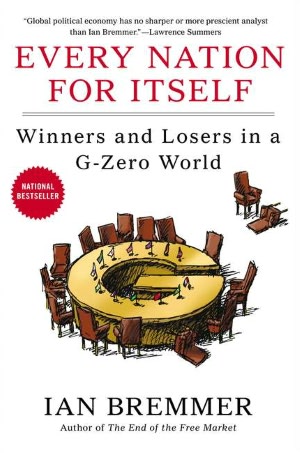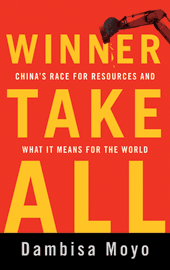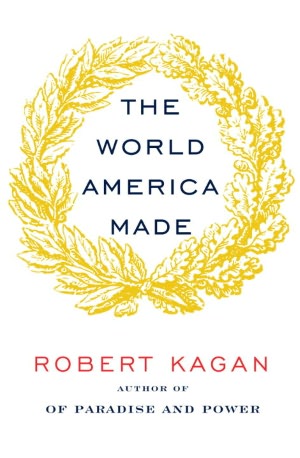Eight Books to Read This Summer
ESPIONAGE:
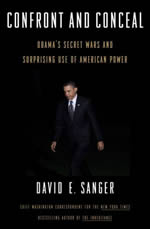 Confront and Conceal: Obama’s Secret Wars and Surprising Use of American Power
Confront and Conceal: Obama’s Secret Wars and Surprising Use of American Power
by David Sanger
David Sanger, the chief Washington correspondent for the New York Times and award-winning journalist, began to make ripples with the publication of his article on the U.S.-Iran cybersecurity conflict, “Obama Order Sped Up Wave of Cyberattacks Against Iran,” four days before the book’s release. Hence, it ought to come as no surprise that Sanger’s book is becoming most known for its attempt to answer the burning foreign policy question: are we at war with Iran? Along with his in-depth discussion of “the Olympic Games”—the code name for the wave of cyberattacks issued against Iran—Sanger analyzes Obama’s foreign policy at large in conjunction with his 2008 electoral promises, tracing his idealism about fighting “a war of necessity” in Afghanistan to a state of fatigue and frustration.
POLITICS AND RELIGION:
Sword of the Spirit, Shield of Faith: Religion in American War and Diplomacy
by Andrew Preston
Andrew Preston, the author of The War Council: McGeorge Bundy, the NSC, and Vietnam and Nixon in the World: American Foreign Relations, 1969-1977, introduces Sword of the Spirit, Shield of Faith as a text dealing with a lesser-known aspect of American diplomatic history: the role of religion in shaping diplomacy. In Preston’s own words: “Sword of the Spirit, Shield of Faith aims to help fill this gap in our understanding of how Americans have engaged the wider world. It presents a new survey of the history of American foreign relations, told predominantly through a religious lens,” beginning with the English settlers in the sixteenth century and ending with the presidency of Barack Obama. His approach focuses on two different “schools” of theological and political thought: first, the “sword of the spirit” melds Christian faith with state power, creating the school of thought associated with the likes of George W. Bush and the Puritans; second, the “shield of faith” represents the aggressively demilitarized side with a humanitarian bent—those focused less on liberation through force and more on “beating swords into plowshares.” Preston traces these two schools throughout American history, identifying where they collide and their relation to the waging of war and the bringing of diplomacy throughout American history.
GONZO WAR STORY:
The Operators: The Wild and Terrifying Inside Story of America’s War in Afghanistan
by Michael Hastings
Michael Hastings, a contributing editor at Rolling Stone and writer/reporter for BuzzFeed, is probably most known for his June 2010 Rolling Stone article “The Runaway General”—a profile of U.S. Army general Stanley McChrystal, the then-commander of NATO’s International Security Assistance Force in Afghanistan. The Operators picks up where Hastings left off in 2010, providing readers with a behind-the-scenes look at the conflicts and bureaucratic squabbles underneath the relatively ineffective diplomatic façade. Hastings begins with profiling General David D. McKiernan, McChrystal’s predecessor, and his reaction to Sarah Palin’s acceptance speech on 4 September 2008 at the Republican National Convention, where he states she sounds “like [someone] running for prom queen.” Hastings continues to recount the McChrystal affair on the backdrop of a larger picture of struggle—and sometimes failure—to stabilize and solidify democracy in the Middle East.
GEOPOLITCS:
Every Nation for Itself Winners and Losers in a G-Zero World
by Ian Bremmer
Ian Bremmer, the president of the risk-consultancy firm the Eurasia Group and renowned geopolitical analyst, defines “G-Zero” as “a world order in which no single country or durable alliance of countries can meet the challenges of global leadership.” Bremmer’s book may appear to be towing the party line of American decline, but, as he clarifies in the introduction, “America and Europe have overcome adversity before and are well equipped over the long run to do it again.” Instead, it is a book about the transition our world is undergoing—one where we have become increasingly vulnerable to volatility economic, socio-political, or environmental factors. Every Nation for Itself—described as a “virus movie” by The New Yorker inasmuch as its terror comes from its plausibility—portrays a state of the world without leaders or the control mechanisms necessary to deal with the constantly changing challenges of globalization. This, Bremmer assures us, is a passing phase, but a sense of deep-seated uneasiness remains.
Winner Take All: China's Race for Resources and What it Means for the World
by Dambisa Moyo
Best-selling author Dambisa Moyo--the author of Dead Aid--explores the three-pronged strategy utilized by China in its rush for resources. First, China began working with countries such as Argentina, Kazakhstan, and Brazil--all of which have a tremendous amount of resources but have mostly been ignored by global powers like the United States. Second, China "overpays" for commodities, thus facing no competition. Finally, China has effectively become a monopoly, and thereby the main price-setter for certain resources such as coal or copper. China's rush may still in its early stages, but it’s nevertheless a force to be reckoned with.
HISTORY:
The Passage of Power: The Years of Lyndon Johnson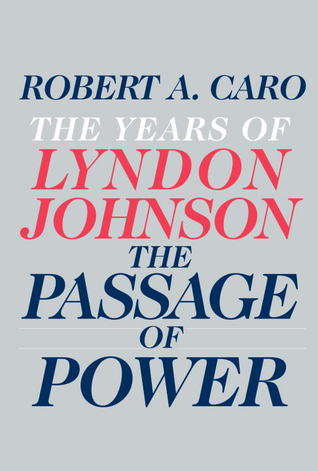
by Robert A. Caro
Robert A. Caro, the author of The Power Broker: Robert Moses and the Fall of New York and The Years of Lyndon Johnson series, has released his newest book--the fourth installment in The Years of Lyndon Johnson. Called “a masterpiece” by the London Times and “a minutely detailed picture of an immensely complicated and conflicted individual” by the New York Times, The Passage of Power covers Johnson’s life from 1958 to 1964, kicking off with the run up to the 1960 presidential election and ending several months after Kennedy’s death. Although Caro writes a great deal on Johnson’s domestic policy, The Passage of Power is more focused—as per the title—on Johnson’s rise to power and the difficulties facing the new president. Caro’s analysis of Johnson, on a wider scale, identifies that “although the cliché says that power always corrupts, what is seldom said, but what is equally true, is that power always reveals.” It is this “revealing” that is the core of the book, and, like Sanger’s Confront and Conceal, says just as much about Johnson himself as it does about the presidency itself and the extent—or even limitations—of executive power.
Prague Winter: A Personal Story of Remembrance and War, 1937-1948
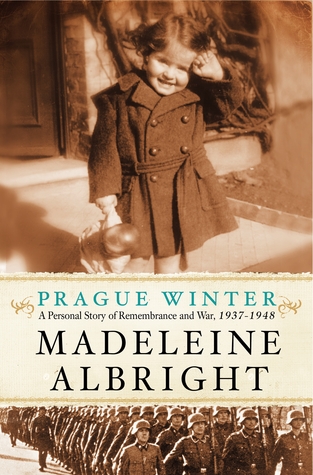 by Madeleine Albright
by Madeleine Albright
“Some people pursue enlightenment by sitting quietly and probing their inner consciousness; I make plane reservations,” notes former U.S. Secretary of State Madeleine Albright in the introduction to her newest book, Prague Winter. Yet, Prague Winter is not simply a personal history; it draws a clear and concise picture of Europe during the Second World War from the perspective of an Eastern European family, Albright’s own, whose Jewish identity was concealed by a conversion to Catholicism—a fact she discovered long after her diplomatic career was already underway. Although the text is, in part, both autobiographical and biographical, it tells a story that millions of individuals with European Jewish heritage can relate to: the relentless search to try and find a story or documentation of what really happened—even just the chance to find something, anything, whether it is simply a name in a database or a brief snippet of one’s ancestors’ histories.
AMERICAN POWER:
The World America Made
by Robert Kagan
Is America really in decline, moving closer and closer to the brink? Has American power weakened after decades of global leadership? “It’s true,” writes Robert Kagan, historian and Fellow at the Brookings Institution, “the United States is not able to get what it wants much of the time. But then, it never could.” For a superpower allegedly in decline, the U.S.’ reach is still far. Today’s international world order remains “America’s,” and, as the world’s humanitarian hegemon, it is America’s duty to protect and preserve. The world as we know it, he claims, could not continue without American power—it is not self-sustaining. It is, perhaps, this unifying message and statement of purpose that has enabled The World America Made to reach across party lines on Capitol Hill, managing to garner the attention of both Mitt Romney and President Barack Obama equally.







